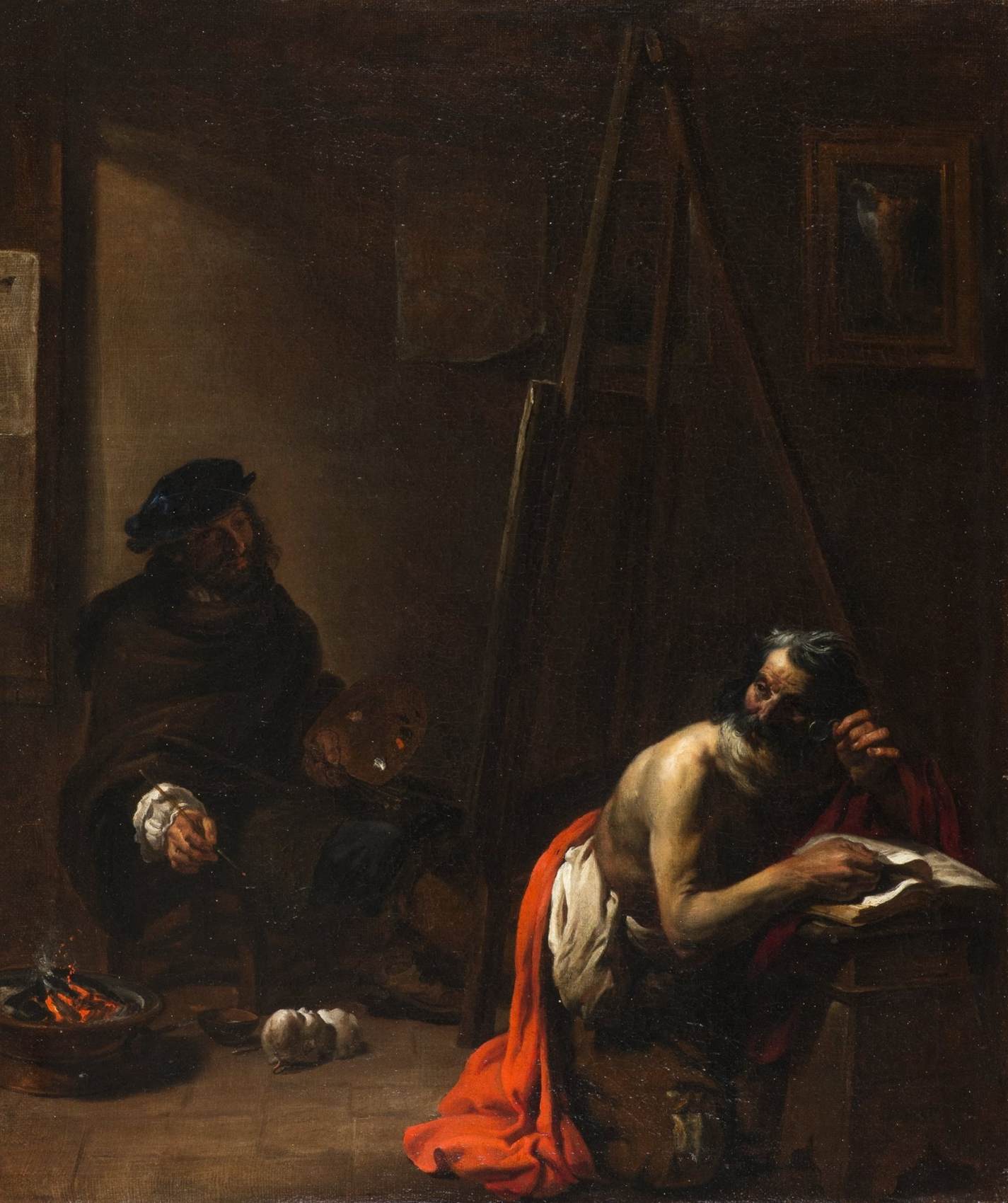Description
The painting Self-Portrait in his Studio by Michelangelo Cerquozzi is a fascinating work that stands out for its artistic, historical and little-known aspects. First of all, Cerquozzi's artistic style is characterized by his ability to capture the essence of everyday life in the 17th century. In this work, the artist manages to capture his own image in his studio, surrounded by painting tools, books and other objects that reflect his passion for art.
The composition of the work is another interesting aspect. Cerquozzi uses a perspective technique that allows him to create a sense of depth in the painting. Furthermore, the artist portrays himself in a relaxed and natural position, giving the work a feeling of intimacy and authenticity.
Color is another prominent aspect of the painting. Cerquozzi uses a palette of soft, warm colors that give the work a sense of calm and tranquility. Tones of brown and beige predominate in the painting, reflecting the warm and welcoming atmosphere of the artist's studio.
As for the history of the painting, it is known that it was created in the 17th century and that it belongs to the genre of self-portrait. Although not much is known about Cerquozzi's life, he is believed to have been an Italian artist who worked in Rome during the 17th century. His work is characterized by his ability to capture daily life and the details of life in the city.
Finally, there are little-known aspects of the painting that make it even more interesting. For example, Cerquozzi is believed to have used a mirror to create his self-portrait, allowing him to capture his own image with great precision. Furthermore, it is known that the painting was restored in the 20th century, giving it a new life and saving it from degradation.
In summary, the painting Self-Portrait in his Studio by Michelangelo Cerquozzi is a fascinating work that stands out for its artistic style, composition, color, history and little-known aspects. It is a work that reflects the artist's passion for art and his ability to capture the essence of everyday life in the 17th century.

